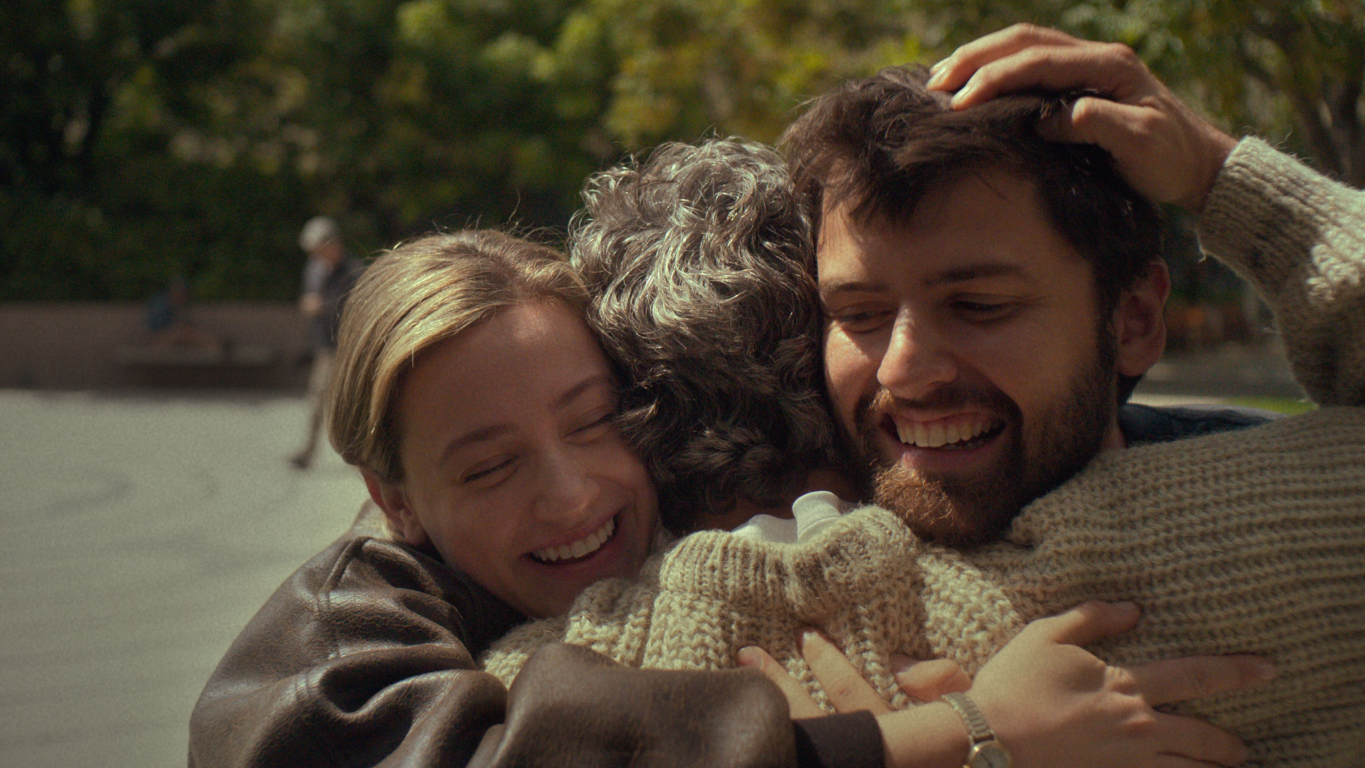The final episode of Cooper Raiff‘s eight-part series, “Hal & Harper,” opens with a dedication: “For parents and the parentified.” At its best, the show evokes that love and care for the struggles and anxieties of parenthood, and the arrested development that comes when children are forced to parent themselves. As a young filmmaker with two attention-grabbing features already under his belt—2020’s “Shithouse” and 2022’s “Cha Cha Real Smooth“—Raiff’s work has often dealt with the tensions of growing up and putting away childish things. But here it’s told with remarkable patience and self-assurance, even as Raiff often gets in his own way.
Told in elliptical, time-jumping fashion across decades, “Hal & Harper” holds its focus on a struggling family coping poorly with loss and trauma; we quickly clue in that the mother dies tragically when both kids are very young, freezing them emotionally in place. The titular kids are the jittery Hal (Raiff) and his older sister Harper (an incredible Lili Reinhart), first seen in their early twenties, still figuring their lives out. Hal feels like a manchild who’s coasting through college with a best friend who tells him that he’s “not, like, a person sometimes,” all raw nerves and people-pleasing eagerness.
Harper, meanwhile, is freshly out of college, toiling away at an entry-level desk job and in a six-year relationship with her first love, Jesse (Alyah Chanelle Scott), whom she can’t bring herself to leave, even though she’s already checked out. A fling with a coworker (Addison Timlin, also a producer) offers her the chance for something exciting and new. Still, she’s stuck: Stuck in the limbo of her existing connections with Jesse, Hal, and her guilt-ridden father (Mark Ruffalo). They’re all so dependent on each other in ways that can offer peace but also hold them back; Hal and Harper’s lack of boundaries, even in adulthood, quickly registers as unhealthy.
While the first two episodes cement the show’s montage-y, impressionistic nature—much of the show’s runtime plays out in airy intercuts set to weepy indie-folk needledrops from acts like Phoebe Bridgers and Waxahatchee—it’s at the end of ep 2 that we see one of Raiff’s more ambitious stylistic choices: We cut back to 2009, as Hal and Harper enter first and third grades. Instead of casting kids, the twentysomething Raiff and Reinhart play the roles instead; the former adjusts his physicality to play around with preteen clumsiness, while Reinhart’s Harper still smokes and makes jokes about drinking. “You really had to grow up way too fast,” Dad says to them and us, hammering home this conceit.
It’s a cloying, on-the-nose moment to sell the vibe, and “Hal & Harper” has a lot of these. When watched all at once, the show’s sleepy, waxy tone can sometimes grate, as the overwhelming gentleness of its presentation and the simplistic, fuzzy-wuzzy dramedy wear thin.
That attitude is all over Raiff’s work, especially “Cha Cha”; especially on screen, Raiff’s presence is somewhat of a weak point, as his wide-eyed enthusiasm can whittle away his more charming moments as an actor. His works feel singularly focused on the dissonance between childhood and adulthood, and the pull towards the simplicity of childhood to keep oneself safe.
“Hal & Harper” makes merry play with the divide between adults who can’t leave their childhoods behind and are a bit too grown-up to do childhood right. The beats that explore that frisson are some of the show’s most successful. The problem comes from the show’s awkward, stuttering structure. Because we flit back and forth so much in time, it’s hard to get a grasp on these characters or their conflicts, and they don’t get a chance to build organically.
Structuring a show achronologically should create purpose in those intercuts; alas, we’re left juggling two or three different conflicts at once that don’t resolve satisfactorily. Certain subplots, like Dad’s girlfriend (an underused Betty Gilpin) struggling against the possibility of their unborn child having Down’s Syndrome, feel tacked-on and perfunctory, and the broader question of “can they deal with selling their childhood home?” doesn’t ripple out boldly enough into their wider lives to feel important.
What elevates the show’s hazy presentation, though, is the performances of Reinhart and Ruffalo, each of whom finds remarkable grace notes in their thorny, complicated characters. Reinhart’s Harper feels like the adult of the family, for lack of a better term; she’s always had to take care of Hal and her father to some extent, and this moment in her life plays out like a deeply painful crossroads. She’s a fuckup, trapped in cycles of self-destructive behavior because she doesn’t know what she wants. Reinhart’s expressive face speaks volumes, whether it’s guilt, memory, or conflict, in ways the sparse, overly sentimental script doesn’t allow her.
Ruffalo, for his part, is often off in his own show, as the emotionally closed-off father who turns inward to deal with his trauma. It somewhat isolates his character from the rest of the show, but it gives him a beautiful showcase to mark his weathered, hangdog expression, filled with decades of grief and sorrow, in ways that resonate when he’s the focus.
When we deal with loss, time can seem to stand still. I know; as I type this, I am myself waiting to hear whether my maternal grandmother, the matriarch of our family, will pass today. It’s one of those terrifying prospects that no amount of emotional fortification can truly prepare you for. In its final hour, especially, “Hal & Harper” captures the bittersweet nature of change and how closing one chapter can help you open up another. But perhaps that’s evidence enough that there’s a solid three-star movie’s worth of concept here, rather than stretching it out to a loose, thin five-hour television series.
Whole season screened for review. Premieres on MUBI October 19.
Source link
